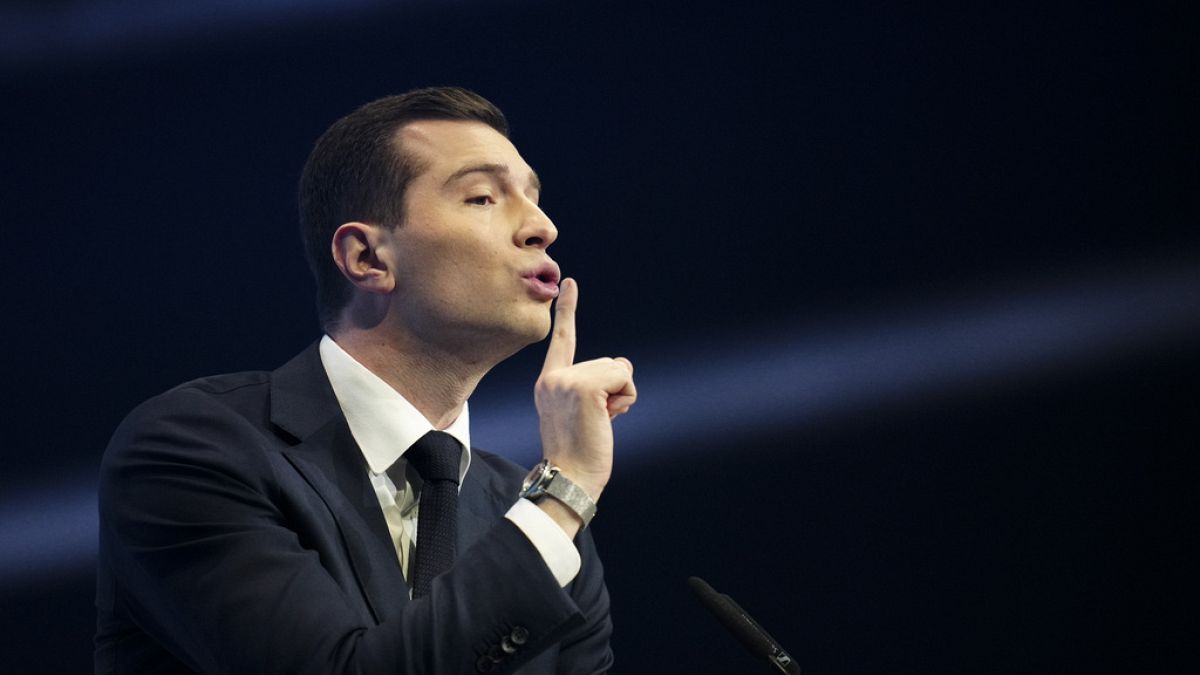The recent TV debate between French Prime Minister Gabriel Attal and far-right EU candidate Jordan Bardella just two weeks before the European elections on 9 June was marked by heated exchanges and stinging accusations. The debate focused on various topics including Russia, Europe, climate change, immigration, and Ukraine. However, the absence of other candidates such as Valérie Hayer of President Macron’s party Renaissance and Raphaël Glucksmann of the Socialist Party raised criticisms of an unfair advantage given to the two participants.
Prime Minister Attal accused Bardella’s party of having alleged links to Russia, stating that the far-right party needed money and Russia needed a party in Europe to weaken the continent from within. In response, Bardella condemned Russia’s aggression towards Ukraine and emphasized his party’s condemnation of such actions. The debate also touched on the need for more or less Europe, with Bardella advocating for reform within the bloc rather than exiting it, while Attal highlighted the strength and unity that the European Union provides.
Climate change was identified as a key issue by both participants, with Attal proposing significant investments in the green transition while Bardella criticized what he viewed as unrealistic expectations from the presidential party and expressed concerns about restrictive regulations on French industry. Immigration also emerged as a major topic, with the National Rally party advocating for closing the free movement of non-Europeans in the Schengen area and proposing a national referendum on the issue. Attal countered this stance by rejecting the idea that all foreigners are delinquents or terrorists, emphasizing the need for a more compassionate approach.
The debate also delved into the issue of Ukraine, with Bardella opposing Macron’s proposal to send French troops to the region and rejecting the idea of Ukraine joining the EU. Attal, on the other hand, reiterated France’s support for Ukraine and Macron’s pursuit of diplomacy and peace in the region. Despite the clash of perspectives and policy differences, both candidates aimed to sway centrist voters and overturn polling trends in their favor as the elections approached. With Bardella’s National Rally party leading in the polls, the challenge for Attal and Macron’s Renaissance party was to bridge the gap and broaden their support base among the electorate.
Overall, the debate provided a platform for contrasting views on key issues facing Europe and highlighted the divergent approaches of the far-right and the incumbent government towards challenges such as climate change, immigration, and international relations. The exchange between Attal and Bardella not only showcased the ideological differences between the two parties but also underscored the broader political landscape in the lead-up to the European elections. As voters prepare to cast their ballots, the contrasting visions presented by the candidates will likely shape the outcome of the elections and influence the direction of European policies in the coming years.










